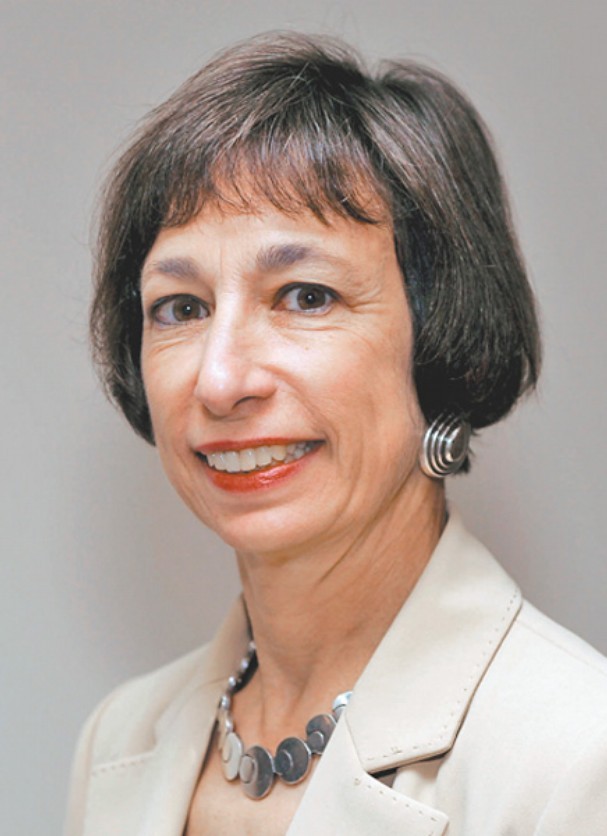One of the truly amazing spectacles of the current election season is the ongoing parade of judges and judicial candidates for public inspection at cattle-call events that are held several nights each week, it would seem, by various organizations around Shelby County.
It is a phenomenon that occurs every eight years, as all trial-court judges — and that includes members of the bench in Circuit, Criminal, Probate, and Chancery Crourt, as well as Juvenile Court and General Sessions Court, civil and criminal divisions — are required to stand for election, along with a goodly number of candidates, including some ex-jurists looking for new venues, who seek to take their places.

Tennessee Supreme Court Justice Janice Holder
This year’s election date for judgeships is August 7th, simultaneous with the county general election and with primaries for state and federal offices.
Including incumbents and challengers, there are some 81 candidates seeking voter approval to don judicial robes and make crucial decisions affecting citizens’ safety, livelihoods, fortunes, and freedom. Even, at times, whether they live or die. Just now, however, it is the voters who get to sit in judgment.
And to watch this vetting process in action, this humbling of authority, is a strangely empathetic process. It needs to be remembered that most of the men and women on display at these judicial forums have either been lawyering all day and all week or sitting on the bench presiding over cases.
Given the crush of competition for most judicial positions, and keeping in mind what is at stake, they not only have to spend their evenings, lunch hours, and weekends at such judicial forums as are offered, but they also turn up at various other political candidates’ fund-raisers and meet-and-greets for a chance to stand up and state their name and what judgeship they’re running for, on the chance that this or that stray voter might be influenced in their favor.
Never mind that most of the attendees at these events, including the forums per se, are other candidates and their helpers; often such folk are the sole attendees. Yet it still pays to be there somehow. Or so the candidates believe.
A case in point is Janice Holder, the outstanding, well-credentialed Memphis jurist who first won election to Circuit Court in 1990 and went on to serve on the state Supreme Court, becoming ultimately its Chief Justice. Holder, who decided to retire rather than participate in a retention election this year, competed in a crowded field the year of her first election, showing up at every scheduled event, large or small.
It paid off. Holder won. She didn’t know why, but her always being there — everywhere — for whatever audience there was, may, as she and those who watched her do it suspect, have made the difference in a close race.
The sponsors of these events run the gamut of civic, legal, and, yes, political organizations. Judicial elections are formally nonpartisan, but the two major political parties, as well as various political clubs and ballot-hustlers make endorsements and publish them one way or another.
The Midtown Republican Club has, in successive months, held forums for judicial candidates, dividing them by civil and criminal categories. The Germantown Democratic Club utilized the same formula this week on successive nights, calling their events, held in the Great Hall of Germantown, “Just Desserts.”
That name was more than an interesting pun; the participating judges and contenders who took part were asked to bring actual dessert samples for attendees to munch on or take home — a nifty innovation and, er, as tasteful a way as any to go about the pandering that is an inevitable part of the democratic process.
Keep in mind, however, that candidates for judgeships have to undergo their election-year obstacle course in shackles that candidates for regular political offices don’t have to worry about. Judicial canons of ethics forbid them to make promises, state their opinions on legal cases or issues, or do much more than recite their professional qualifications.
And, keeping in mind, too, the old saw that money is the mother’s milk of politics, judicial candidates have to be milk-drinkers like everybody else, but they are not allowed to participate directly in fund-raising. That’s the business of quasi-separate support committees.
The special restrictions on judicial elections stick in the craw of some of the participants. At such gatherings, Lee Coffee, judge in Criminal Court, Division 7, can and does boast an impressive background: Graduate of Northwestern University and Harvard Law schools; in practice for 32 years; service in the offices of the District Attorney and U.S. Attorney and as a Public Defender; involved in more than 600 jury trials during his time as lawyer and judge.
“Experience does count,” he told the audience at Germantown’s Great Hall Monday night, but he went on to add, “Tennessee has a really strange law. It says that to run for judge you have to be 30 years of age, you have to live in the state for five years, you have to live in the [judicial] district for one year. You have to demonstrate competence by having a license to practice law.
“There are literally certain people running for judge who could not try certain cases as lawyers but are asking for your votes to try cases as a criminal judge.” That, Coffee said, was “an insult to the administration of justice.”
Variants of that statement have been made here and there by judicial candidates during this year’s forums. They are made all the time in private conversation, particularly by sitting judges who see their professional careers endangered by a process involving political tides and too much sheer chance.
Still, that’s the law, and the law is something that lawyers and judges, actual or aspiring, have to respect. And so they soldier on, in forum after forum, making appearances at political clubs and politicians’ events, not to be seen again in such circumstances — most of them, anyhow — for another eight years.
As one judicial candidate noted Monday night, the Memphis Bar Association will soon perform a service it renders every eight years on the occasion of judgeship elections in Shelby County. Sometime before the end of June, the association will publish on its website, memphisbar.org, the results of a “judicial qualification poll” taken of members of the bar, regarding all contenders for judicial positions on the August 7th ballot.
• Also, on the score of judges facing judgment, there is much statewide interest — as was mentioned in last week’s column —in the forthcoming retention elections scheduled for three members of the state Supreme Court: Chief Justice Gary Wade and Justices Cornelia Clark and Sharon Lee.
Lieutenant Governor Ron Ramsey, a Republican, has launched a campaign for a ‘no’ vote on the three justices, all of whom were appointees of former Governor Phil Bredesen, a Democrat. Numerous members of the state’s legal community have professed themselves alarmed about the interjection of partisanship.
Memphian Holly Kirby, who was recently named by Governor Bill Haslam to succeed the retiring Holder on the High Court, was asked her opinion on the matter during her attendance at last Friday night’s “Statesmen’s Dinner” in Nashville, the annual gala of the Tennessee Republican Party.
While Kirby shied away from expressing an opinion on the merits of the justices or of Ramsey’s campaign, she was willing to say for the record that the unusual degree of attention now focused on the matter had a positive side. “It’s good that people realize that these retention votes are bona fide elections, not just a matter of rubber-stamping something.”
Kirby also said she supported the Judicial Selection Amendment on the November 4th statewide ballot, which eliminates nominating commissions and provides for direct gubernatorial appointment of all state appellate judges, who would then be subject to regular retention elections.


